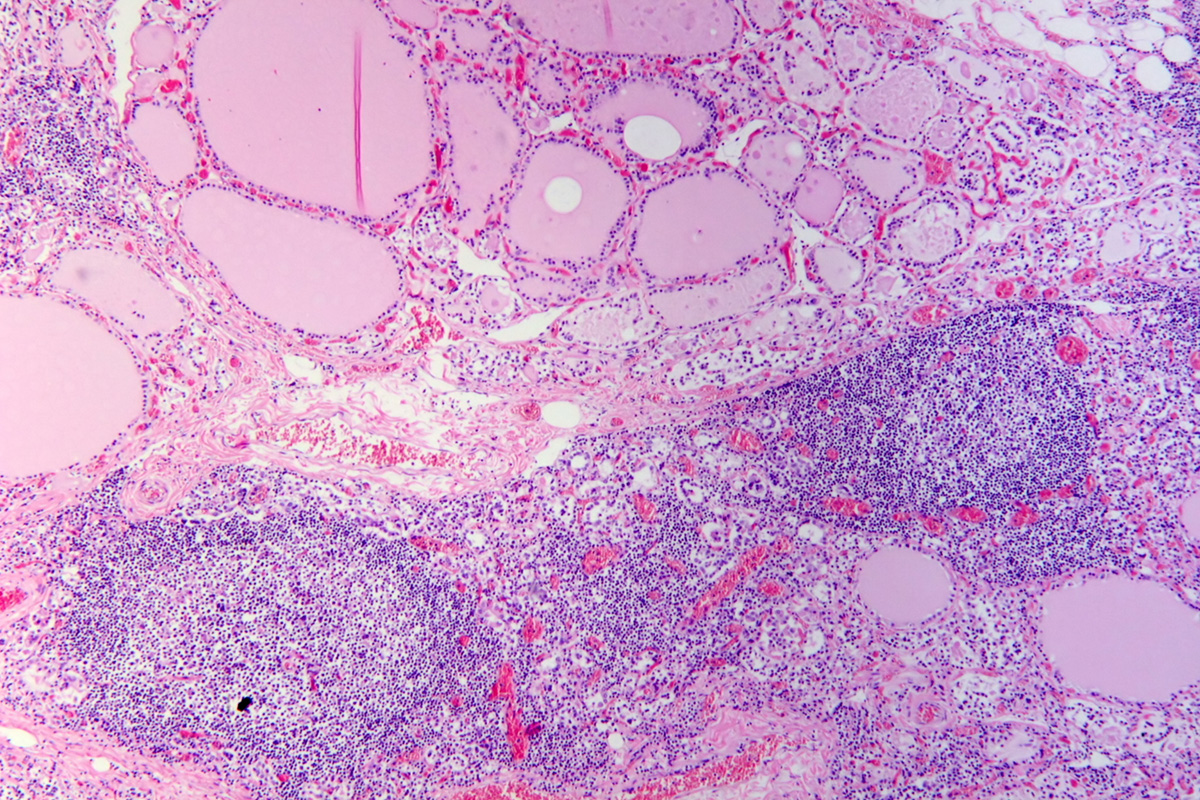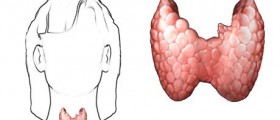
There are several medical conditions that may affect the thyroid gland. The most common ones are associated with either reduced or increased production of thyroid hormones i.e. hypothyroidism and hyperthyroidism.
The thyroid gland is one of the most important glands in the human body. Any damage to its function that eventually leads to imbalance of the hormones normally produced by the gland can be detrimental for a person. Malfunction, especially if it is not treated on time and properly may even lead to lethal outcome. This is why it is essential to identify all the symptoms and signs of thyroid gland disorders, determine the underlying cause and treat them accordingly.
Inadequate Production of Thyroid Hormones ( Hypothyroidism and Hyperthyroidism)
In case of insufficient amount of thyroid hormones the person is sluggish, his/ her metabolism is decelerated and there is obesity present. Acute hypothyroidism leads to serious slowing down of the metabolism which eventually results in noticeable weight gain.
On the other hand, hyperthyroidism features with increased production of thyroid hormones and associated increase in metabolism. The effects of accelerated metabolism feature with anxiety, nervousness, restlessness, increased appetite, weight loss, increased sweating, irregular menstrual periods in women etc.
Thyroid Problems during Pregnancy
Researchers have found connection between thyroid problems and certain complications in pregnancy. Some believe that it may be important to routinely test pregnant women and check the level of thyroid hormones. This way some potential complications associated with thyroid health problems such as miscarriage can be successfully prevented. In case a woman is suffering from hypothyroidism and is treated properly the risk for pre-term delivery and miscarriage rate decrease.
Treatment for Thyroid Problems
In case of excessive production of thyroid hormones a person can be treated medicamentously or surgically. Even treatment with radioactive iodine is possible. The goal of all the mentioned treatments is to reduce the excessive production of the thyroid hormones and bring them under control. Some of the most commonly used medications are beta blockers, propylthiouracil, methimazole and iodine. Radioactive iodine is highly effective in treatment of hyperthyroidism but it may convert the condition into hypothyroidism. And finally, if none of the previously mentioned helps there is one more option, surgical resection of the gland.
Patients suffering from hypothyroidism require long term substitution with thyroid hormones. These are synthetic hormones but they act as natural thyroid hormones and perform all the activates the same as the hormones produced by the very thyroid gland.
It is essential to identify any of the disorders of the thyroid gland on time and start the treatment as soon as possible. Only this way potential complications associated with hyperthyroidism or hypothyroidism can be successfully prevented.
















-In-Infants-And-Older-Children_f_280x120.jpg)
Your thoughts on this
Loading...